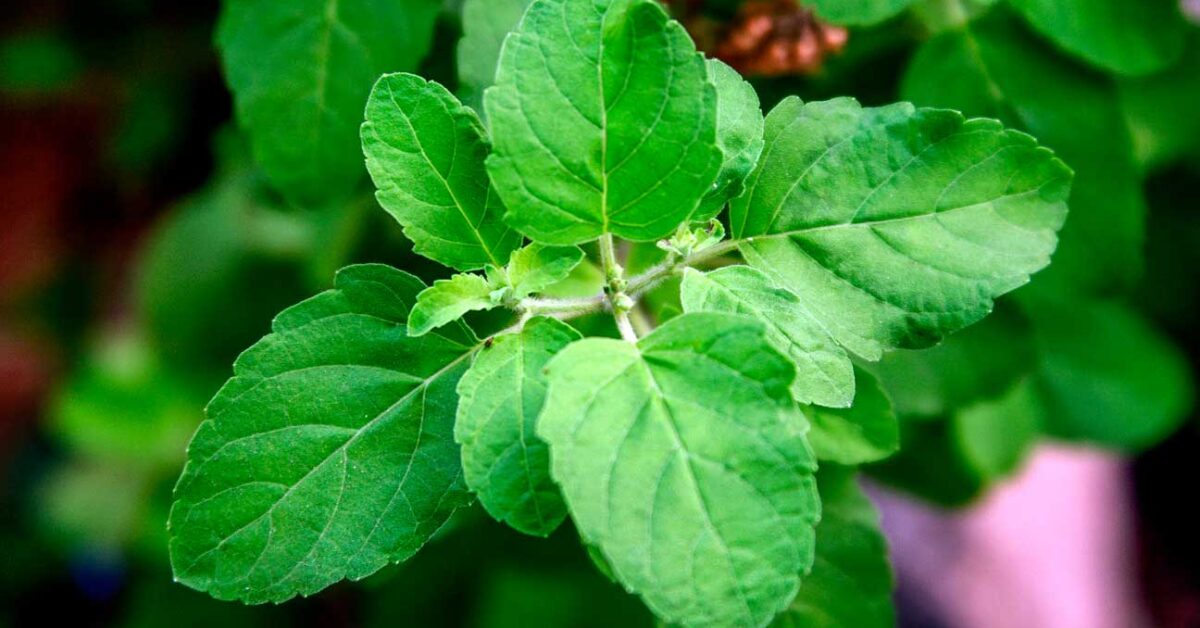Tulsi Tea – The Many Benefits of a Tulsi Herb
Tulsi (Ocimum sanctum) is a perennial herb that is part of the mint family (Lamiaceae). It grows easily in tropical and subtropical areas and is a fairly easy to grow plant. It’s hardy in hot and dry climates and prefers well drained soil. Because it is aromatic, it is a common ingredient in fragrances and aromatherapy. Tulsi has been used for medicinal purposes since ancient times in Ayurveda, the traditional medicine of India.
The benefits of Tulsi go far beyond those it provides as a culinary herb or aromatic oil. It is often recommended for relief of common illnesses because of its adaptogenic properties. As a tea, Tulsi can provide a relaxing, cooling sensation to the body which may improve one’s quality of life. It has been proven to improve the immune system, increase energy, regulate mood and has anti-inflammatory and pain-relieving properties.
The benefits of Tulsi are not limited to the individual. The herb is useful for improving overall wellness and preventing or reducing the development of chronic diseases. Tulsi tea is helpful in relieving stress and reducing anxiety. It is also known to stabilize the liver and normalize blood sugar levels. A steady intake of Tulsi herb supplements can lead to a reduction in cancer risks and increase resistance to infections.
In Ayurveda, Tulsi is considered an adaptogenic herb due to its power to strengthen the body’s ability to resist stressors and environmental stresses. The strengthening of the body’s immune system is particularly helpful in combating chronic diseases. Because the herb supports the body’s ability to fight off infection, Tulsi tea can be used as a treatment for colds and the flu.
Tulsi also plays a role in relaxation. When brewed at a gentle simmer, Tulsi tea is very relaxing. The herb contains calming polyphenols that are known for their ability to induce relaxation. However, there is more to Tulsi tea’s healing properties than just a relaxed feeling. The polyphenol antioxidants present in Tulsi tea also help rid the body of free radicals, which are believed to contribute to the development of certain types of cancer.
Tulsi tea’s powerful antioxidant benefits also help relieve symptoms of arthritis. It is effective in reducing the body’s level of LDL cholesterol, which contributes to the development of atherosclerosis and coronary artery disease. Its high antioxidant concentration is also believed to prevent oxidative stress, which can cause DNA damage and cell mutation leading to cancers and other serious diseases. Additionally, Tulsi increases the body’s supply of vital nutrients, which aids in tissue repair and regeneration.
Tulsi also has strong anti-inflammatory properties. This tea can be helpful in the treatment of arthritis because it contains tannic acid, which reduces inflammation while also reducing pain. Tulsi tea’s benefits do not end there. The herb also serves as an effective natural astringent, which can effectively reduce swelling and offer relief from such conditions as blisters and bruises, as well as the common cold.
The benefits of Tulsi tea go far beyond its ability to provide relief from common illnesses and injuries. The powerful, naturally-derived ingredients in Tulsi tea have been used by the Hindu religious community for centuries as traditional medicine. They are beneficial in a number of different ways, including treating depression, stimulating the immune system, and preventing illness and infection. This tea is also commonly used as a spice in meals, and its healing benefits make it one of the most widely used herbs in the world.
The active ingredients found in Tulsi tea can be separated into three categories: alkaloids, flavonoids, and saponins. Each of these has different roles in the body and the way they affect the immune system, as well as the development of various problems, has different effects. For example, while all three are primarily alkaloids, there are a few exceptions, namely tulsi-specific alkaloids. Tulsi tea contains tulsi-specific alkaloids that work with the immune system to strengthen it against bacteria and viruses. In fact, tulsi-specific alkaloids have been proven to help strengthen the body’s defenses against many types of cancer. The benefits of Tulsi tea do not just stop there, however.
It also contains the medicinal benefits of anther plant: the cupressus plant. The two plants share a lot of common properties, which have been used in India for centuries. Cupressus offers a wide range of benefits, including pain relief, improved circulation, and improved immunity from both internal and external diseases. Some of the most common uses of the cupressus plant include relieving muscle spasms, treating urinary problems, treating digestive disorders and problems with the kidneys, fighting inflammatory conditions, improving the appetite, and treating flatulence. Other benefits of the tea from the Tulsi plant are also centred around the bladder, such as improving urine flow and reducing the risk of incontinence.
As you can see, there is a lot that Tulsi tea can do for your body. Although this type of tea is known to bring about positive health benefits, it is important to note that some people experience allergic reactions when drinking tea. As a result, it is vital to ensure that you are drinking tea of the right age, and from a trusted source. For instance, raw tea should never be consumed, and the Tulsi tea that you buy should come straight from the plant.


